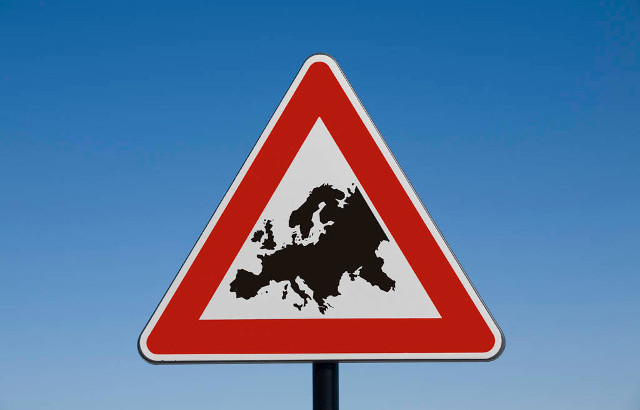European equities remain an attractive medium-term prospect despite a second successive quarter of slowing growth in the eurozone and a slump in German manufacturing output, according to Edward Park, investment director at Brooks Macdonald.
Eurozone GDP growth weakened to 0.3% in Q2 following a similar drop in Q1 which many analysts blamed on cold sub-zero weather. But the Italian election coupled with protectionist global trade rhetoric has dampened business confidence and reduced exports.

“Many analysts thought the Q1 drop in growth in the eurozone (from 0.7% to 0.4%) was something of an aberration. But in hindsight a number of themes are playing out,” Park said.
The election of a populist Eurosceptic government in Italy in the Spring which has vowed to slash taxes and raise spending in contravention of EU fiscal rules has obviously fuelled uncertainty. The new Italian government needs to agree its fiscal plan for next year by September and must present a draft budget to the European Commission by mid-October.
“Eurozone growth in terms of corporate earnings is significantly lower than in the US but as a result it is trading on a far more reasonable valuation.”
However, the eurozone slowdown has primarily been led by a fall in European exports, Park said. Exports led the rebound in the eurozone last year where growth hit a 10-year high at 2.4%.
A slump overseas demand led to a 4% fall in new orders placed with German manufacturers between May and June and driving this drop in orders has been the slowdown in the Chinese economy.
“Germany exports a huge amount to China,” Park said. “But Chinese demand is being hit by US tariffs as well a cyclical slowdown in the Chinese economy as it transitions from a manufacturing-led economy towards a more consumer-led economy.”
Oil pushes up input costs
Another factor is the rise in the price of oil. Over the last year, the oil price has risen more than 40% to $74 a barrel which has pushed up input costs. German industrial prices, for example, were up 3.6% year-on-year in June.
James Dowey, chief investment officer at Neptune Investment Management said investors may have got a little carried away with last year’s growth in the eurozone of 2.4% – twice the European Central Bank’s 1.2% estimate of potential growth. “It was a little bit too good to be true. This year’s run rate so far – pretty much bang on potential – seems more realistic,” he said.
The slowdown in the eurozone has seen investors shun European equities in favour of US equities as the S&P 500 hits record highs and Park expects this trend to continue over the short term. However, he said over the medium term European equities could still come back into favour despite the recent weak data.
“Eurozone growth in terms of corporate earnings is significantly lower than in the US but as a result it is trading on a far more reasonable valuation,” Park said. “The fact that consensus is not in favour of the eurozone means that you are going to have a less rocky ride in terms of market positioning.”
Could ECB extend QE?
The ECB is in the process of phasing out its long-running quantitative easing programme. The central plans to continue its asset buying programme at the current monthly pace of €30bn until the end of September when it will halve the monthly pace to €15bn until the end of December when the programme is expected to end. However, Park said if the slowdown in GDP growth continues and the political situation in Italy worsens then further ECB support cannot be ruled out.
“The ECB is expected to stop quantitative easing (QE) but it doesn’t have to,” he said, adding that the central bank looking at stopping QE in 2016 and 2017 but then opted to continue. “We are seeing tapering from €30bn a month to €15bn until December but the ECB definitely still has the option of to expand it into next year and I think they would use it if the slowdown continues.”
Christopher Graham, an economist covering Europe at Standard Chartered Bank, shared the view that there was an outside chance QE could continue into next year in a research paper published on Wednesday. “[Further] ECB emergency support cannot be ruled out,” he wrote, if the Italian government pushes ahead with populist fiscal policies that spark a clash with the European Commission causing a surge in market volatility.
For more insight on continental European investment, please click on www.expertinvestoreurope.com








